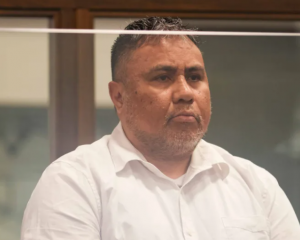Low-wage workers are getting a pay top-up of 50 cents an hour, but unions and opposition parties say the increase falls well short of what's needed by those struggling to get by.
Labour Minister Kate Wilkinson today announced the minimum wage would increase from $13 to $13.50 an hour, and the training and new entrants' minimum wages will increase from $10.40 to $10.80 an hour from April 1.
Ms Wilkinson said the increase equated to about $20 a week for fulltime workers, and struck the right balance between protecting low-paid workers and ensuring jobs were not lost.
"The [Labour] department's analysis suggested that if we put it up to $15 that could result in the loss of 5000 to 6000 jobs,'' the minister told reporters this afternoon.
"If you look at the hospitality industry, retail, they're the ones that are most affected by it, and they will just employ less people and not take people on.''
Although workers' groups welcomed an increase, the general consensus was that 50 cents was not enough.
Opposition parties and unions have called for an increase to $15 an hour, and Council of Trade Unions secretary Peter Conway told APNZ today's rise would not go a long way to relieving poverty or inequality.
"The disappointment today is that the Government didn't do something bolder for those on low incomes, and say `look there is a case for a much more significant increase','' he said.
"Measures of living standards show that many New Zealanders experience hardship on a daily basis and point to the widening gap between rich and poor. This small increase to the minimum wage will not help these groups of New Zealanders in any meaningful way.''
Mr Conway said unions would increasingly bargain for $15 to become a minimum wage in collective contracts.
Service and Food Workers Union national secretary John Ryall said today's announcement was "a tragic disappointment for hard working families on the lowest rates''.
"Many of our members will remain below the minimum wage, even though they are performing vitally important roles, providing care for some of the most vulnerable New Zealanders. The fact is $13.50, or $14 an hour, is not a living wage,'' Mr Ryall said.
Labour's spokeswoman for labour issues Darien Fenton said low-wage workers who were barely scraping by would still be "treading water''.
"While $20 a week will be welcome, the basics - like power, food and rent - will undoubtedly continue to climb, meaning our poorest workers will be no better off at all,'' Ms Fenton said.
"It is galling too that despite this latest increase and despite this Government's grand plan to bring New Zealand into line with our Australian counterparts, the minimum wage across the ditch is still some $6.50 an hour higher than it is here.''
New Zealand First leader Winston Peters described the increase as "pretty lousy'', and criticised National's action on the minimum wage since taking office in 2008.
"In their fourth year, they've raised it by $1.50 - pretty bad news,'' he said.
Green Party co-leader Russel Norman also expressed disappointment, and said Ms Wilkinson's argument about possible job losses did not stack up.
"There's no evidence that increasing the minimum wage would reduce jobs. There's a lot of study that's been done about this in New Zealand and internationally, and it would not reduce jobs,'' Dr Norman said.
"This is a Government that clearly has a preference for working in the interest of those at the top not those at the bottom.''











